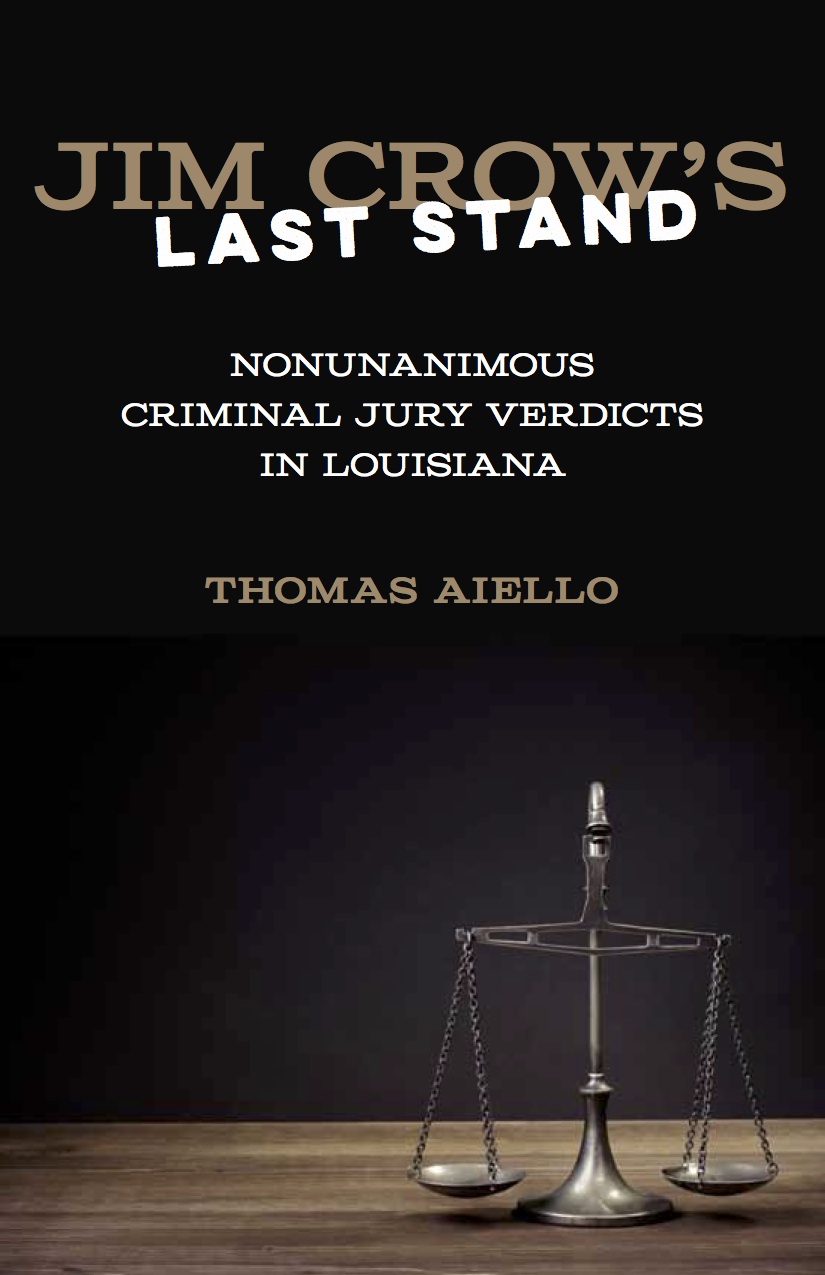FIRST EDITION HARDBACK STILL AVAILABLE!
Jim Crow's Last Stand: Nonunanimous Criminal Jury Verdicts In Louisiana
The last remnant of the racist Redeemer agenda in the Louisiana’s legal system, the nonunanimous jury-verdict law permits juries to convict criminal defendants with only ten out of twelve votes. A legal oddity among southern states, the ordinance has survived multiple challenges since its ratification in 1880. Despite the law’s long history, few are aware of its existence, its original purpose, or its modern consequences. At a time when Louisiana’s penal system has fallen under national scrutiny, Jim Crow’s Last Stand presents a timely, penetrating, and concise look at the history of this law’s origins and its troubling legacy.
The nonunanimous jury-verdict law originally allowed a guilty verdict with only nine juror votes, funneling many of those convicted the state’s burgeoning convict lease system. Yet the law remained on the books well after convict leasing ended. Historian Thomas Aiello describes the origins of the statute in Bourbon Louisiana—a period when white Democrats sought to redeem their state after Reconstruction—its survival through the civil rights era of the 1950s and 1960s, and the Supreme Court’s decision in Johnson v. Louisiana (1972), which narrowly validated the state’s criminal conviction policy.
Spanning over a hundred years of Louisiana law and history, Jim Crow’s Last Stand investigates the ways in which legal policies and patterns of incarceration contribute to a new form of racial inequality.
SECOND UPDATED EDITION NOW AVAILABLE IN PAPERBACK
In this revised and expanded edition, I have added a new preface and an additional chapter at the end of the book, building on the amazing research done by scholars like Thomas Ward Frampton, Kyle R. Satterfield, Angela A. Allen-Bell, the team of reporters at the New Orleans Advocate, and others in the years following the book’s original publication, discussing in particular the role of black jury service as a motivating factor for the 1898 constitutional convention, the problematic racial effects of the nonunanimous jury standard still in effect today, and the successful grassroots movement and ultimate amendment process that led to Louisiana’s new unanimity standard.

